

RU Home Students will spend their first 1.5 years at RU, and take classes completely in English. Classes are taken with students in RU’s Global Studies Major*, as well as with second and their year AU Home Students who are studying at RU. They will spend their next two years at AU. After returning from AU in their 4th year, they will spend their final semester at RU and carry out their Capstone Project, as a culmination of their four years of learning. AU and RU collaborate continuously to provide students with academic support during their four years in the program. Academic advisors from both AU and RU collaborate and update each other regularly on the academic situation of each individual student. A unique advantage of this program is that students are able to continue their studies in a coherent manner at both their home and host institutions.
Ritsumeikan University offers courses that begin with 'RUIR~', while all other courses are offered at American University.
JDP Curriculum is here
Core Courses enable students to gain the broad range of liberal arts background knowledge needed to take an active role in global society. The curriculum is designed to prepare students to acquire the basic knowledge and critical intellectual disposition to learn about Global IR from multiple perspectives.
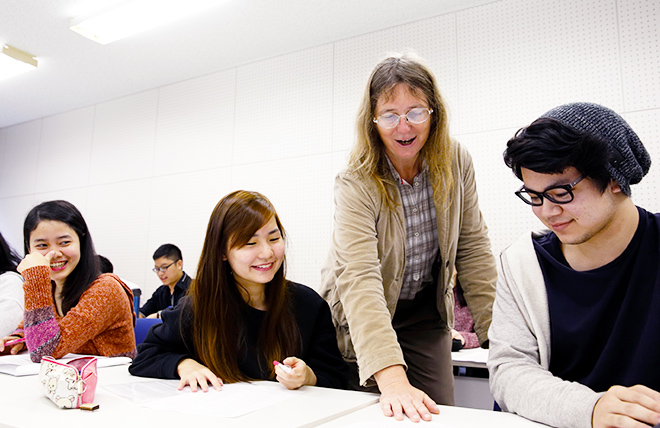

The program will offer foundation courses that consist of Basic Economics, World Politics, and International Economics. There are also ʻCohort Coursesʼ specifically designed for JDP students. These studies are considered to be the fundamental elements comprising the foundation of Global IR.
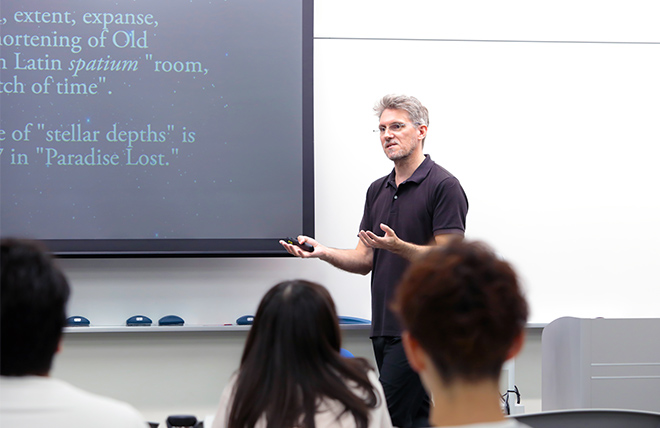

Basic research methodology courses will allow students to obtain the appropriate research methodology skills needed for the study of Global IR. The courses include training in data collection, research design, and statistical analysis, as well as advanced and subject-specific research methodologies.
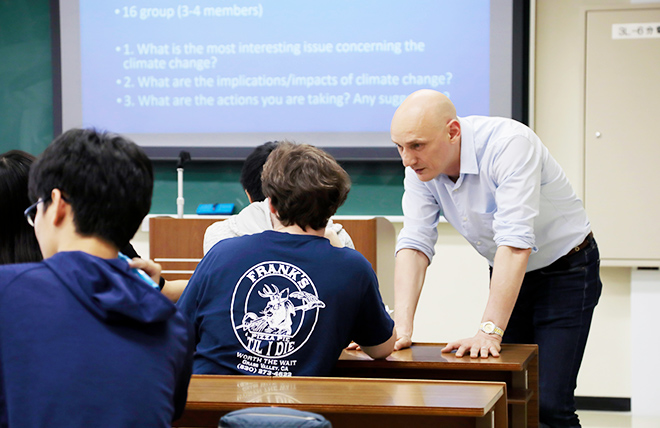

A systematic approach to studying topics in Global IR is important and in order to promote this the program offers courses in three thematic areas: “Global and Comparative Governance (GCG),” “Identity, Race, Gender and Culture (IRGC),” and “Peace, Global Security and Conflict Resolution (PGSCR).”
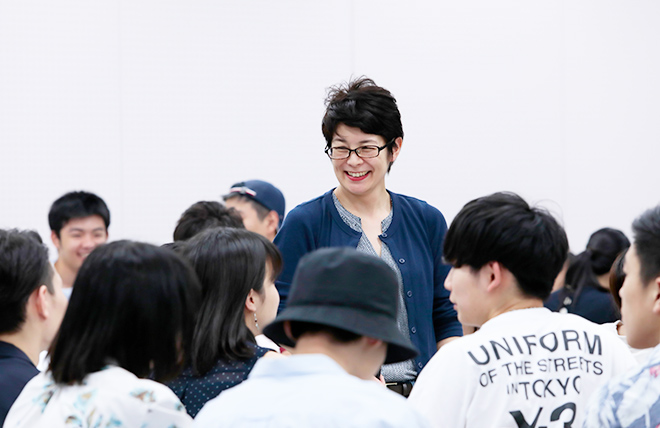
Global and Comparative Governance (GCG)
Identity, Race, Gender, and Culture (IRGC)
Peace, Global Security, and Conflict Resolution (PGSCR)

Students will deepen their understanding of global and regional issues through diverse area studies courses. These courses cover a broad selection of regions, focusing particularly on East Asia and the Pacific.
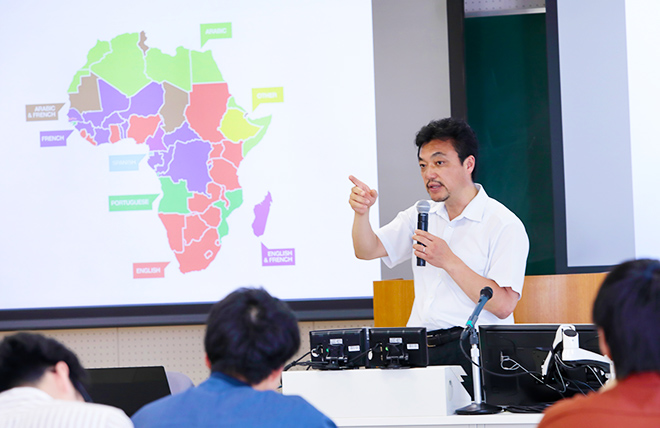

All students will complete a capstone project in their final year in the program as the culmination of their four years of learning. Students will design and conduct research under the guidance of faculty members from both institutions.


classes outside the program while studying at AU. Students will be offered the opportunity to take internships courses at AU, gaining valuable applied experience in Washington, DC.*
*Students must consult with their academic advisors and obtain their permission when taking these courses.
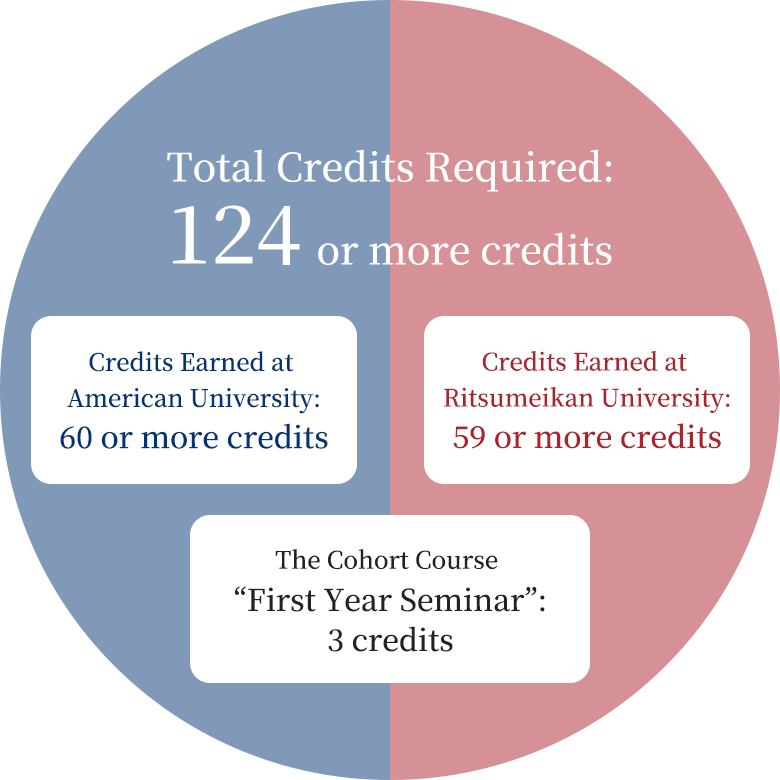
| Course Categories | Requirements | |
|---|---|---|
| Core Courses | 43 credits and above | |
| Foreign Language | Completion of intermediate or higher Japanese language subjects *Native Japanese speakers or those with equivalent Japanese language proficiency are exempt |
|
| Foundation Courses | Basic Economics | 6 credits and above |
| World Politics | 3 credits and above | |
| Cohort Courses | 6 credits and above | |
| International Economics | 3 credits and above | |
| Research Methodology | 6 credits and above | |
| Thematic Areas | Gateway Courses | 9 credits and above |
| Thematic Area Courses ※Choose a primary and secondary Thematic area from three areas |
9 credits and above 6 credits and above from primary thematic area, 3 credits and above from secondary thematic area) |
|
| Regional Focus | East Asia and the Pacific | 9 credits and above |
| Capstone | 3 credits and above | |
| Elective | 3 credits and above | |
| Total | 124 credits and above | |
In the American University - Ritsumeikan University Joint Degree Program, it is possible for students to receive credit for Advanced Placement (AP) and International Baccalaureate (IB) examinations taken prior to enrollment.
1: In the JDP curriculum, it is possible to receive credit for the following three courses.
[WRT-100](WRT-IB/ WRT-AP)
[ECON-100]
[ECON-200]
2: Although these credits will not count towards the minimum number of credits which must be earned at each university, by receiving these credits, RU Home Students (students who begin their studies at Ritsumeikan University) can elect to have some of their first- and second-year introductory courses waived, allowing them to choose from a wide range of courses to take instead.
Note: Because the JDP is managed according to the regulations set by Japan and the US, it is required that of the 124 credits needed to graduate, students must earn at least half of the credits (62 or more credits) at Ritsumeikan University and more than half of the credits (63 or more credits) at American University. Therefore, the credits from IB and AP examinations earned prior to enrollment cannot be included in these credit requirements.
Please see the American University page below.
By having WRT-100 College Writing (WRT-IB/ WRT-AP) articulated, you will be exempted from the requirement of taking RUIR-1101 Academic Skills I, RUIR-1102 Academic Skills II and RUIR-1103 Academic Skills III (three required courses worth a total of 12 credits) and can take other courses instead during your first year at RU.
By having both ECON-100 Macroeconomics and ECON-200 Microeconomics articulated, you will be exempted from the requirement of taking RUIR-1211 Macroeconomics, RUIR-2212 Microeconomics, and RUIR-1213 Economics for Global Studies (three required courses worth a total of 6 credits), and can take other courses instead during their first and second year at RU.
Note: Students who have only one of ECON-100 Macroeconomics and ECON-200 Microeconomic articulated will be required to take two of the three economics courses at RU (e.g. students having ECON-100 Macroeconomics articulated will be required to take RUIR-2212 Microeconomics and RUIR-1213 Economics for Global Studies.)